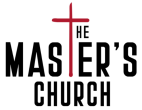When most people hear the word stewardship, either they are not familiar with the word or they primarily think about money. For Christians the word coveys the concept of how they handle money and how that is related to their relationship with God. While this is a primary emphasis of stewardship, it is not the full picture. Stewardship can also be related to time, work and service that invests in God’s eternal purposes.
The Greek word for stewardship is “oikonomos” and it comes from two root words “oikos” (house) and “nomos” (law). Thus, a steward is one who is the “law over the house,” and all that is associated with the house. A steward was one, in the ancient world of the Bible, who was given authority over the household while at the same time not owning anything in the household. Eliezer of Damascus, it is implied, possessed that role of steward over Abraham’s household (Genesis 15:2). Joseph was a steward over Pharoah house (Genesis 39:4). Later on Joseph himself had a steward over his house and finances (Genesis 43:19). In the New Testament, Paul describes Elders in the church as stewards of God over His Church. Titus 1:7, For the overseer must be above reproach as God’s steward. Believers also are described as stewards of God’s gifts, to dispense the benefits of them to the church. 1 Peter 4:10, As each one has received a gift, minister it to one another, as good stewards of the manifold grace of God.
This concept of stewardship derives from the fact that God owns the world. The Bible says in Psalm 24:1, The earth is the LORD’s, and everything in it, the world, and all who live in it. God has entrusted dominion over His creation to humans as stewards under His watchful eye (Genesis 1:26). We are to manage His creation in accordance with the principles He laid out in His Word. That includes even our bodies, which are owned by God (1 Corinthians 6:19-20). The Bible also says that Christ is the head of the church (Ephesians 5:23). We are all stewards of the resources, abilities and opportunities that Christ has entrusted to our care as we serve one another in the church. At the Judgment Seat of Christ every believer will be called to give an account for how they have managed what the Master gave them. This is what Jesus taught in the Parable of the Talents (Matthew 25:14-30). In fact, Jesus often used the illustration of a steward for the purpose of driving home discipleship. In the Parable of the Unjust Steward, there is a steward who defrauds his master by settling accounts with his master’s debtors at a bargain price (Luke 16:1-13). Jesus uses this to point out that disciples must strive to be wise in spiritual things, just like the unbelieving steward was wise in human affairs.
Everything we have has been given to us from God, including our time, money, abilities and relationships. Since we will all give an account to Christ for how well we managed these things, we must do the very best with what we have. This really hits home when we think about our money and time. If God owns our money and we are just a manager of it, how should we then spend it? How would God have us use our time? We are only allotted a certain amount of time on planet earth so what we do with it matters to God. A believers duty is to use money and time wisely as tools to take care of ourselves and others, while building God’s kingdom on earth.
Scripture Reference
Abram said, “O Lord God, what will You give me, since I am childless, and the heir of my house is Eliezer of Damascus?”
So Joseph found favor in his sight and became his personal servant; and he made him overseer over his house, and all that he owned he put in his charge.
So they came near to Joseph’s house steward, and spoke to him at the entrance of the house.
Then God said, “Let Us make man in Our image, according to Our likeness; and let them rule over the fish of the sea and over the birds of the 1sky and over the cattle and over all the earth, and over every creeping thing that creeps on the earth.”
19 Or do you not know that your body is a temple of the Holy Spirit who is in you, whom you have from God, and that you are not your own?
20 For you have been bought with a price: therefore glorify God in your body.
Studies You May Also Find Interesting:

Sanctification: How We Are Made Holy
This week’s biblical and theological term to ponder on is “sanctification.” Some people assert that we need to change these

Deception: The Enemy’s Trick
Jesus said in Matthew 24:4, “Take heed that no one deceives you.” We are living in a day and age

Discernment: Recognizing Truth from Error
The word “discern” or “discernment” in English Bible Translations comes from several different Hebrew and Greek words and their derivatives. Generally speaking,

